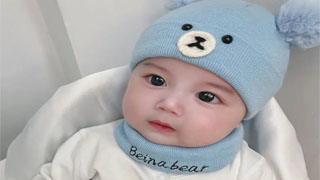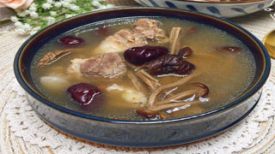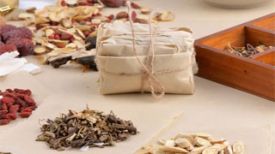
Article excerpt: "Traditional Chinese Medicine Ancient Methods for Infant and Child Health Preservation"
A mother asked:
My child has an allergic constitution. Once we went to the south to play, and it was almost winter. One day, our child suddenly started coughing. We gave him some Chuanbei loquat paste to drink, but it didn't work. He coughed continuously for three or four days, every day. Eventually, he couldn't stop coughing, so we took him to the hospital. The doctor was very angry and blamed us for bringing the child to see him so late, which had already caused asthma. Later on, whenever I caught a cold, I developed asthma. I really don't know if this asthma is caused by procrastination or congenital factors?
Dr. Peng Xin replied:
Especially for children with allergic constitution, if they cough repeatedly, they must pay attention. Such children are prone to developing pneumonia and allergic bronchitis, which can easily progress to asthma.
Is coughing possible to turn into asthma
Some children may not have asthma at the beginning, but rather allergic rhinitis or allergic skin diseases because they have an allergic constitution.
What are the characteristics of allergic constitution? The immune system in the body is prone to overreaction. Just like eosinophils and mast cells, when these cells have some invasion, they will appear and then come to eliminate bacteria, viruses, and so on. The so-called allergy refers to the absence of these bacteria, which automatically produce antibodies and secrete excessively. Excessive secretion on the skin can cause itching and lead to skin diseases such as eczema.
If there is excessive secretion in the lung mucosa and other areas, there will be exudate. If this exudate happens to come into contact with the external attack of coughing, and the two come together, there will be a lot of phlegm and exudate, which will block the respiratory tract. Every breath and inhalation will produce wheezing sounds, like blowing a whistle, which is called asthma. So in fact, Western medicine defines asthma as bronchial asthma, which occurs in the bronchi.
According to the theory of traditional Chinese medicine, pediatric asthma is a combination of external and internal factors. External factors are nothing more than wind evil, wind cold, heat, dampness, dryness, and fire, which can cause respiratory tract discomfort, leading to poor lung qi and coughing, which is caused by external factors. The internal factor is called phlegm drinking. In fact, it is because there is too much abnormal phlegm in the lung and respiratory tract, which blocks the airway, namely the respiratory tract and trachea, and it will produce this kind of wheezing sound. According to traditional Chinese medicine, this is related to internal factors.
What factors can lead to this constitution? The first is to overeat sour, salty, and spicy foods, which can damage the spleen and stomach. Once the spleen and stomach are damaged, their ability to transport and transform will be lost, and phlegm and dampness will naturally form. If the function of promoting and reducing lung qi in the lungs is not in harmony, some phlegm dampness will be produced. The water in the body of the kidney master cannot vaporize properly, and the water in the whole body does not evaporate enough, which can lead to abnormal retention of water. From the perspective of traditional Chinese medicine, it is a problem with the lungs, spleen, and kidneys.
Some people can also become allergic to fur and pollen when they come into contact with them, which are allergens. These external stimuli can lead to internal inflammation and trigger asthma attacks. Generally speaking, a temporary attack of asthma is sudden shortness of breath, accompanied by wheezing sounds, pale complexion, purple lips, and difficulty breathing. This is the initial onset. The western medicine method is spray to dilate the bronchus. Once inhaled, it will be relieved.
How to distinguish between asthma and pneumonia
Because pneumonia also has symptoms such as phlegm, repeated rapid breathing, coughing, etc., but the biggest difference between pneumonia and asthma is:
Firstly, asthma is a recurrent and periodic condition that may occur several times a month. Pneumonia won't happen again once it's cured.
Secondly, pneumonia does not involve allergies. Asthma is 90% related to allergies, and the onset of this asthma is positively correlated with the allergic constitution of the child. The key is to distinguish between these two points.
Disclaimer: This article is a sharing of health knowledge. The drugs, prescriptions, acupuncture and moxibustion and other treatment and health preserving methods mentioned in this article should be applied under the guidance of professional doctors, and should not be applied by yourself. We are not responsible for any issues arising from improper use.


